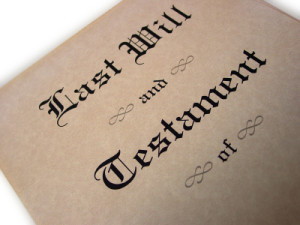 Alan Thicke died on December 13, 2016. His two older sons, who are co-executor’s of their dad’s living trust, have filed a petition in court to get instructions on how his 1988 trust (amended last year) and a 2005 prenup signed by him and his third wife, Tanya Callau should be considered. Basically, what’s in question is what’s separate property, what’s community property, and how it should be split among the co-executors and their third brother and Callau.
Alan Thicke died on December 13, 2016. His two older sons, who are co-executor’s of their dad’s living trust, have filed a petition in court to get instructions on how his 1988 trust (amended last year) and a 2005 prenup signed by him and his third wife, Tanya Callau should be considered. Basically, what’s in question is what’s separate property, what’s community property, and how it should be split among the co-executors and their third brother and Callau.
“It’s a question of what Alan wanted, and we’re just attempting to honor his intentions and enforce his trust,” says Alex Weingarten, the litigator representing Thicke’s sons. “It was Alan’s money; it was Alan’s career; it was Alan’s talent; he had the right to decide what would happen to it upon his passing.”
The prenup, attached to the court petition, shows that before the couple built a life together, with Callau helping to raise Thicke’s youngest son, Carter, they came into the marriage with vastly different resources. Thicke listed his net worth as $14 million at the time. By contrast, Callau, a model, listed a $40,000 ring as her sole asset, and $3,700 in debts.
According to the article in Forbes, one big issue in the estate dispute is the division of the $3.5 million Carpenteria, Calif. ranch which Thicke listed as separate property in the prenup but the couple called home. The prenup says Thicke was to name Callau as beneficiary in his will to get 25% of his net estate, including a 5-acre parcel split of the property, but the trust doesn’t give her any part of it, just the right to live there so long as she pays 100% of expenses.
Unfortunately, these disputes between later spouses and kids from earlier marriages are common. There are so many lessons in these battles. One—As circumstances change, know that a prenup can be revoked by both parties, or amended by a postnup. You need good advice—separate advisors for each party– from both a divorce lawyer and an estate lawyer in either case.
For more information about estate planning, go to www.diesmart.com.




